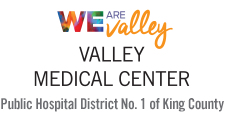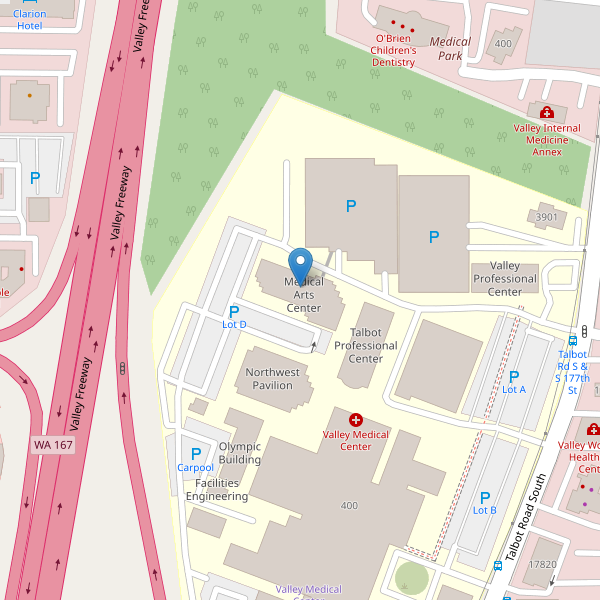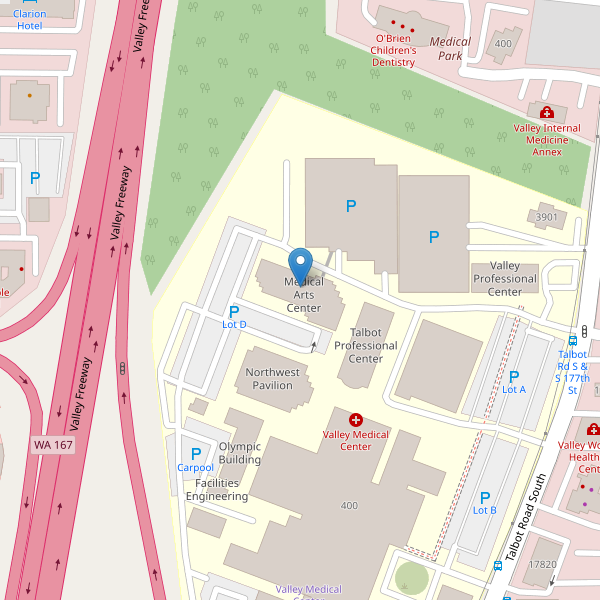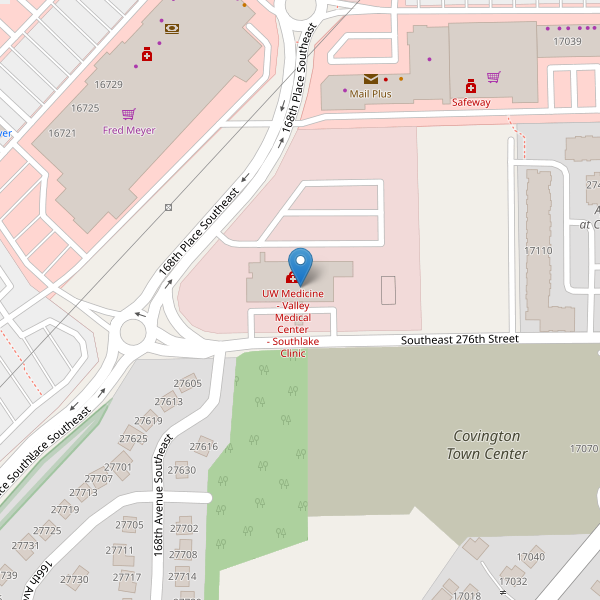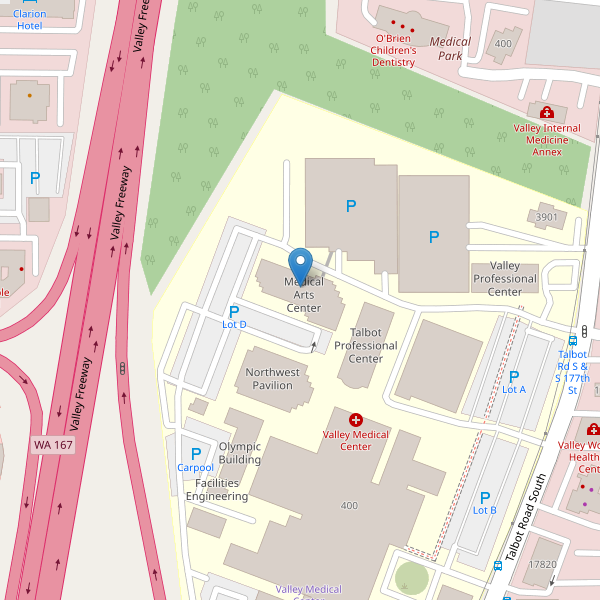Measles Exposure Notice: We’re responding to a confirmed case of measles at Valley Medical Center’s Emergency Department on Sunday, Oct. 26. We’re working closely with public health to notify anyone who may have been exposed. Learn more.
Healthcare is on the ballot this November. Learn about Hospital Prop 1.
Your Guide to Surgery
Surgical Services at Valley Medical Center provides a full range of elective, urgent and emergency operative procedures 24 hours a day, seven days a week. The main operating suite consists of 21 operating rooms—including two robot-assisted surgery suites—and is capable of handling all types of surgery; nearly 1000 surgeries are performed monthly. In addition, our Day Surgery Center is designed for less complex procedures that do not require an overnight stay.
Our compassionate and dedicated Surgical Services team specializes in the following surgical procedures:
- General Surgery
- Colorectal Surgery
- Joint Replacement
- Laparoscopic Surgery (minimally invasive and single-port)
- Robot-Assisted Surgery
- Ear, Nose and Throat
- Neurosurgery
- Ophthalmological
- Orthopedic
- Plastic (cosmetic and reconstructive)
- Vascular
When Your Doctor Schedules You for Surgery
Shortly after you are scheduled for surgery, our preregistration staff will call you. We will obtain the following information during this call:
- Full legal name
- Mailing address and phone number
- Employment information
- Emergency contact information
- Insurance information, including ID numbers and a claim address
If you have not been contacted by the preregistration staff 5 business days prior to your scheduled procedure, please call the preregistration office at 425.690.3643.
If you are having inpatient surgery, or if you are 60 or older and are having outpatient surgery, we ask that you make an appointment to see our preoperative liaison nurse before surgery. (This is not required for patients having a local anesthetic or unless medically indicated.) You can make an appointment when you preregister. Please bring paperwork you have received from your doctor with you when you see the liaison nurse. Your preoperative appointment will take place at the STAR (Surgical Testing and Registration) clinic located in Valley Medical Center's Surgical Services.
Your Visit with the Preoperative Liaison Nurse
Since most patients are admitted the morning of surgery, a scheduled appointment with the liaison nurse will help prepare you by taking care of necessary procedures before your operation. The nurse will perform a nursing assessment interview and basic physical exam and answer any questions you may have. During this visit, please bring a list of all medications and dosages you take, both prescription and over the counter.
The nurse will also arrange for an electrocardiogram (EKG), if necessary, or any lab test required for your surgery. The liaison nurse will give you instructions for your part in your care, both before and after surgery.
Important Preparations for Surgery
Do not to eat or drink anything after midnight the night before surgery, or as instructed by your surgeon. This includes water. Your doctor may refer to this requirement as NPO, which means "nothing by mouth." If the patient is a child, please watch carefully to ensure the child does not eat or drink anything without your knowledge. Babies under 2 years may eat or drink as usual before midnight; after midnight you may give them water or apple juice only. Stop all fluids 6 hours before the baby's scheduled surgery time.
- If you currently take prescription drugs such as blood pressure, seizure, heart, or asthma medications, take them before surgery, as you normally would, but with the smallest amount of water possible. Be sure to discuss this with your doctor.
- If you are a diabetic patient requiring insulin, check with your doctor regarding your insulin requirement before surgery
- Check with your doctor if you have been taking any over-the-counter medications, including aspirin or ibuprofen.
- Do not wear contact lenses, makeup, lotions, powders, or perfumes the day of surgery.
What You Need to Know About All Surgeries–Outpatient and Inpatient
- Please be aware your scheduled surgery time is only an estimate. Although every attempt will be made to keep your surgery on schedule, your actual surgery time will depend on the amount of time required for cases before yours and the need to prioritize any emergency surgeries.
- It is important we are able to contact you prior to your surgery to notify you of any schedule changes. If you cannot be reached at your home phone, please call us with a number where you can be contacted.
- You will be asked to sign Consent to Care and Financial Responsibility forms. If the patient is under 18 years of age, a parent or legal guardian must sign these forms.
- A nurse will fill out a preoperative checklist. If you wear dentures, eyeglasses, contact lenses, a hearing aid, or jewelry, you will be asked to remove them for safekeeping.
When you schedule surgery at Valley Medical Center, your physician’s office and the Admitting office at VMC will assist with helping you obtain pre-authorization payment by your insurance company and/or assist you in finding other payment sources that you may qualify for well in advance of your procedure. Learn more.
If your procedure is scheduled for the next 48 hours and has not yet been authorized by your insurance or you are uninsured, please contact a financial advocate at VMC to request immediate assistance and financially secure your account. To reach a financial advocate, call 425.690.3442. Or, if you are coming directly from your physician’s appointment and would prefer to stop by, the Admitting offices are located inside the main entrance of the hospital and are available from 8 am – 6 pm Monday through Friday.
If you have any questions regarding statements or bills received, call Patient Financial Services at 425.690.3578. We will be happy to assist in any way we can.
Valley Anesthesia Associates
Dedicated to excellence in perioperative and obstetric anesthetic care for Valley Medical Center, including VMC's Surgical Services and Day Surgery Center.
For information about Valley Anesthesia Associates, questions about anesthesia, and insurance and billing information, visit the Valley Anesthesia Associates Website.
The Morning of Your Surgery
Please leave valuables, including watches, jewelry, and credit cards, at home if possible. You may wish to bring a comfortable bathrobe, slippers, pajamas, and personal toiletries. Also bring any medications you are currently taking, clearly marked in a pharmacy bottle. You may want a small amount of cash for incidentals.
Your surgeon's office will tell you what time to arrive at the hospital. Patients may be dropped off at the main entrance. Please check in at the Surgery Admitting desk. Free parking is available in the Garage G, the South Tower underground garage. See map.
You may be given medication before surgery. This will make you sleepy and cause your mouth to feel dry. Relax and remain in bed with the rails up. If you need anything, call your nurse. For your safety, do not get out of bed.
In the Operating Room
Your surgery team will usually consist of your surgeon, surgical assistant, anesthesiologist, nurse anesthetist, operating room nurse, and surgical technicians. They are all with you to make sure everything goes smoothly during surgery.
Before surgery, an intravenous (IV), a plastic needle, will be inserted into the vein of your hand or forearm. Any fluids or medications you need during surgery are given to you through the IV.
The operating room is kept at a cool temperature; if you become chilled and would like an extra blanket, please ask. We want you to be as comfortable as possible.
Anesthesia
Your anesthesiologist will review your chart and determine the best type of anesthesia for you. There are two types of anesthesia for major surgery: general and regional.
- General anesthesia is usually administered by adding medications to your IV and having you breathe a mixture of anesthetic gases.
- Regional anesthesia is administered by injecting medication to numb a portion of your body for surgery. The numbness will last from 2 to 6 hours. You may also be sedated during your surgery.
Your heart rate, blood pressure, oxygen concentration, and breathing will be monitored closely throughout your operation, regardless of the type of anesthesia used.
In the Recovery Room
After surgery, you will be taken to the PACU (Post-Anesthesia Care Unit), or recovery room. A PACU nurse will care for you as your anesthesia wears off, monitoring your condition and checking your dressing, blood pressure, IV, catheter, and other drainage tubes.
You may experience a variety of symptoms as your anesthesia wears off, including blurry vision, dry mouth, nausea, chills, and of course some pain. Please do not hesitate to ask your nurse for pain or nausea medication. Your anesthesiologist will determine when you can be moved to your room, which is generally within 3 hours after surgery.
Your Recovery
There are several things you can do to make yourself more comfortable and help speed your recovery from surgery:
- Pain management: Unfortunately, some pain after surgery is unavoidable. Medication to ease the pain can be administered in pill form, by injection or through your IV. It is important to tell someone if your pain gets worse, before it becomes unbearable.
- Nausea management: Patients are sometimes nauseated when they wake up. If this should happen, be sure to turn your head to one side and call your nurse to assist you.
- Coughing: After certain surgical procedures, coughing is essential to clear your lungs. Your nurse will teach you how to hold a pillow over your incision and push in and up when you cough.
- Deep breathing: Deep breathing helps prevent pneumonia and increases circulation, which is sluggish after surgery. Your nurse will show you how to use an incentive spirometer to exercise your lungs. The more often you use it, the better. Please do not wait until your nurse reminds you to practice this important exercise.
- Activity: Movement, no matter how small, helps recovery. Try to turn gently in bed and move your limbs frequently. Walking helps stimulate your body's systems, so you will also be "up and on your feet" fairly soon after surgery. Be sure you receive help your first time out of bed and move gently.
- Intake and Output: This is commonly referred to as "I& O." After surgery, your digestive system is sluggish. You may be fed through your IV at first, progress to a liquid diet, then graduate to solid food. You may also have a catheter to relieve your bladder. Your urinary output will be measured regularly.
The Day Before Your Surgery
A nurse will contact you the day before your surgery to discuss your health history and answer any questions you may have.
The Day of Your Surgery
To make your Day Surgery visit as easy as possible, there are several things you should do ahead of time:
- Arrange for someone to drive you to your surgery and to drive you home after surgery.
- Bathe or shower in the morning and wear clean, comfortable clothing that will fit easily over bandages.
- Remove all makeup prior to arrival.
- Leave watches, jewelry, and credit cards at home.
- Bring a list of all your current prescription medications.
- Bring all reports, X-rays, or papers given to you by your doctor.
- If the patient is a child, do not forget to bring a favorite toy or blanket.
- Patients under the age of 18 should have a parent or legal guardian accompany them. The parent or legal guardian must sign the necessary forms and talk with the anesthesiologist.
- Bring your insurance card, prescription card, and/or medical coupon with you.
If you are having foot, ankle, or knee surgery it is a good idea to bring crutches with you. You may purchase or rent them from VMC's Prescription Pad Pharmacy North (located in Valley Professional Center on the north end of campus), Prescription Pad Pharmacy South (located between the main entrance and the ED entrance at the main hospital), or most other local pharmacies.
Most prescriptions you receive may be filled at the Prescription Pad Pharmacy.
Your Arrival
Surgery, Hospital Main Campus You may pull up in front of the main entrance and drop-off the person having surgery. Please refer to this campus map for STAR Clinic and Surgery Admitting locations and available parking.
For the Special Procedure Care Unit, see map for drop-off and parking information.
For the Endoscopy Center, parking is available at the Endoscopy Center building located directly across the street from Valley Medical Center on Talbot Road South. See map.
Parking All parking is free. Patients may be dropped off at the main entrance. Drivers may park in the underground South Tower Garage G by turning right at the end of the drop off roundabout. Ample parking is also available in the lots surrounding the hospital and the Garages C and D.
For most procedures, we ask that you arrive 1 to 1 1/2 hours before your scheduled surgery time. This time will be spent preparing you for surgery. Your doctor's office will give you an arrival time. Please do not be late.
We recommend one friend or relative bring you and drive you home. You will need support and attention after surgery. Please make arrangements to leave young children at home.
To ensure your safety, we require that you arrange for a ride home before your surgery (a taxi is not adequate). If you have not planned for transportation home, your surgery will be postponed or canceled until you have arranged for a responsible adult to drive you home.
Anesthesia
Your anesthesiologist will review your chart and determine with you the type of anesthesia best for you. Four types of anesthesia are commonly used for outpatient surgery: general, regional, local, and topical.
- General anesthesia is usually administered by adding medications to your IV and having you breathe a mixture of anesthetic gases.
- Regional anesthesia is administered by injecting medication around the main nerves to the affected area. This will produce numbness lasting from 1 to 4 hours. You may also be sedated during your surgery.
- Local anesthesia is administered by injecting medication just under the skin to numb a small area.
- Topical anesthesia is administered by applying medication to the mucous membrane for surgeries involving the nose, throat, or bladder.
Your heart rate, blood pressure, oxygen concentration, and breathing will be monitored with special equipment throughout your operation, regardless of the type of anesthesia administered.
After Your Surgery
From the PACU (Post-Anesthesia Care Unit), or recovery room, you will be taken to the Phase II recovery area. Due to space limitations, only one visitor at a time is allowed in the Phase II recovery area. Both parents may accompany a child who has had surgery.
You will be discharged from Valley Medical Center when you are stable, and it is appropriate to go home. It usually takes about 2 to 6 hours from the time you arrive for check-in until you are ready to leave.
Your Care at Home
When you are discharged, you will be given written instructions for your care at home. Be sure to follow your doctor's orders. Take only prescribed medications the first 24 hours after your surgery. Follow a liquid diet for the first 6 hours following surgery, then progress to your regular diet. Once home, you will need plenty of rest. Arrange to have a responsible adult stay with you through the night. If you have any problems, call your doctor.
It will feel good to recover in your own home, but remember not take on too much too soon! For the first 24 hours following your surgery, regardless of how you feel, DO NOT
- Drive a car or take public transportation by yourself
- Drink alcohol
- Sign legal documents or make important decisions
- Operate potentially dangerous equipment
If you received local or topical anesthesia, you may return to normal activities, except those restricted by your doctor.
You should receive a follow-up call from a Valley Surgical Services nurse 1 to 2 days after your surgery. The Surgical Services nurse will be happy to answer any questions you may have about your postoperative care. In the meantime, call your doctor with any concerns or questions.
Your Discharge from Valley Medical Center
At Valley Medical Center, we begin discharge planning when you are admitted. Your personal discharge plan should begin even earlier. Plan to have someone drive you home from the hospital and to your first post-surgery doctor visit. Depending on your insurance, you may be eligible for home nursing visits, Meals on Wheels, and other patient services.
If you need assistance making arrangements for help at home or a place to stay, tell your nurse as soon as possible. Before you leave the hospital, your doctor and nurse will give you specific written instructions on how to care for yourself at home and will answer any questions you may have.
Important Telephone Numbers
Main operator: 425.690.1000
Acute Care Surgical Clinic: 425.690.3433
Colorectal Surgery Clinic: 425.690.3401
Emergency Services: If you are experiencing a critical or life-threatening medical emergency, please call 9-1-1
Endoscopy Department: 425.690.3636
General & Surgical Specialists Clinic: 425.690.3433
Patient Financial Services: 1.855.826.1540 or 425.690.3578, option 5.
Neurosurgery Clinic: 425.690.3585
Preregistration: 425.690.3643
Prescription Pad Pharmacies
North Campus: 425.690.3551
South Campus: 425.690.3552
Special Procedures Care Unit (SPCU): 425-690-3670
Vascular Surgery Clinic: 425.690.3498

